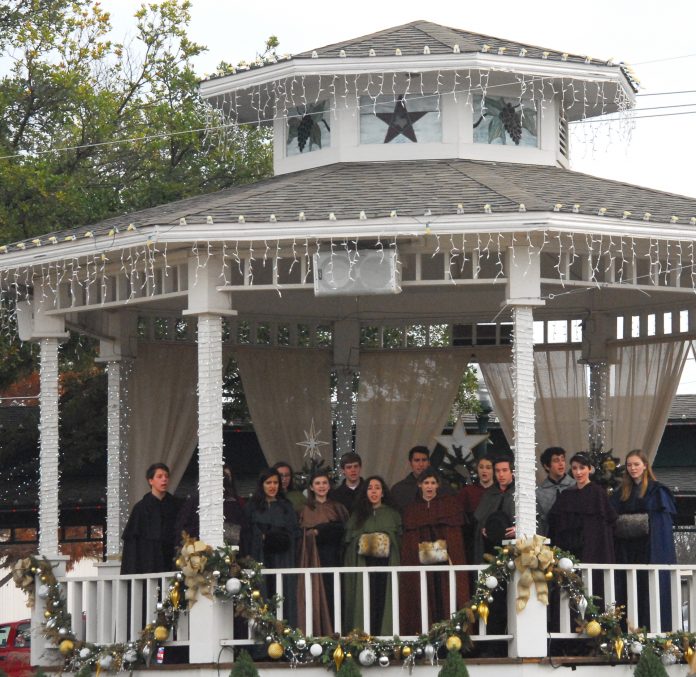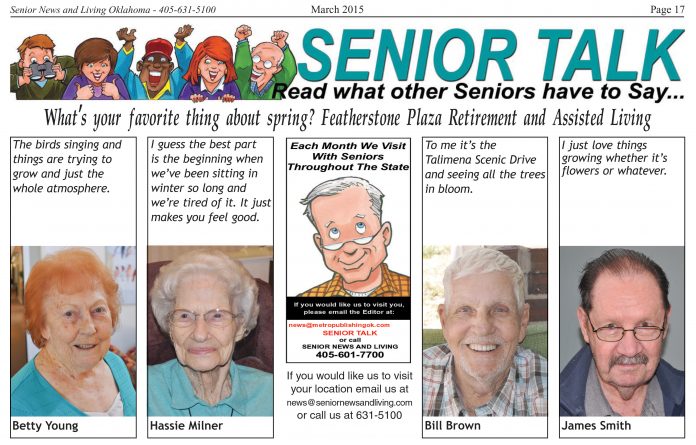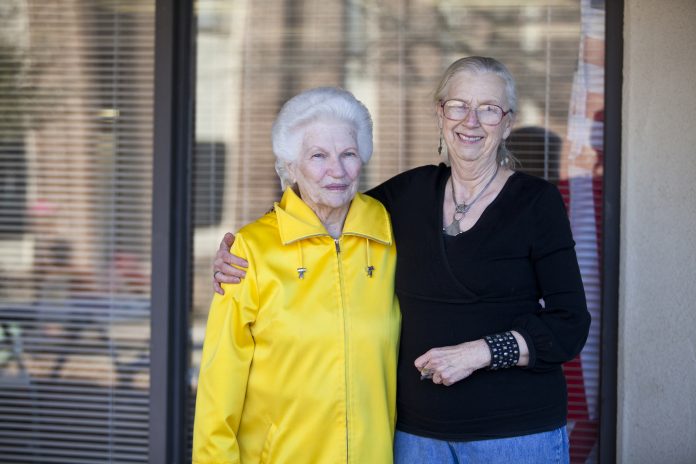A Hughes County funeral home director turned himself after an investigation by the Oklahoma Insurance Department’s Anti-Fraud Unit. Donald Williamson is accused of embezzling almost $75,000 from 28 families who set up prepaid funeral trusts.
“We take crimes like this very seriously,” said Oklahoma Insurance Commissioner John D. Doak. “People are very vulnerable when it comes to funeral planning. They need to be able to trust their funeral home workers. I commend the investigators of our Anti-Fraud Unit. They will continue to bring justice to Oklahoma consumers.”
Williamson owns Williamson-Spradlin Funeral Home in Wetumka. He admitted to investigators he accepted money for prepaid funeral trust accounts and deposited the money into a bank account for his funeral home from November 2011 to December 2014. By law, prepaid funeral trust account money should go into a separate trust account and not be used for any other purpose.
On Friday, officials from the Oklahoma Insurance Department will be available to meet with anyone who bought a prepaid funeral trust from the Williamson-Spradlin Funeral Home. Residents are asked to bring prepaid funeral trust paperwork to the City of Wetumka Council Board Room at 202 N. Main anytime between 11 a.m. and 2 p.m. Meetings are confidential.
“Our Anti-Fraud Unit worked closely with the Hughes County District Attorney’s office on this investigation. They have been very helpful to our case and aggressive in bringing Mr. Williamson to justice,” said Rick Wagnon, director of OID’s Anti-Fraud Unit. “We have seen cases like this before. In 2011, a Creek County funeral home director was charged with fraud after a similar investigation.”
Williamson will face felony counts of embezzlement and violations of the Prepaid Funeral Act.
The Anti-Fraud Unit is a commissioned law enforcement agency that conducts investigations of various white-collar crimes related to insurance fraud. Oklahomans can call to report fraud at 1-800-522-0071.
Wetumka Funeral Home Director Faces Felonies
TRAVEL/ ENTERTAINMENT -Grapevine Texas: Festivals All Year Long
Grapevine Texas: Festivals All Year Long
Photography and Text by Terry “Travels with Terry” Zinn t4z@aol.com
In late fall of last year, I had a delightful and fun filled December weekend in Grapevine, Texas, during their Christmas Celebration. You know Grapevine is the Christmas Capitol of Texas, and everything seems to be bigger in Texas? Between sips of wine, main street shopping and a couple of theatrical presentations, I discovered that Grapevine is filled with festivals and celebrations through the year. Now is a good time to schedule your favorite Grapevine event. With the listings below you can see how Grapevine is officially recognized as a World Festival & Events City by the International Festival & Events Association. Grapevine welcomed more than one and a half million visitors to the city’s festivals and special events in 2014.
Some of Grapevine offerings are:
• 12th Annual Day Out with Thomas™, April 10, 11, 12, 17, 18 and 19: Take a journey with Thomas the Tank Engine™ at the 12th Annual Day Out With Thomas on the Grapevine Vintage Railroad. The train ride is approximately 25 minutes. www.GrapevineTexasUSA.com/Thomas.
• 11th Annual ChocolateFest, April 24 and 25: Sweeten up your weekend at the 11th Annual ChocolateFest, benefiting Travelers Aid D/FW. On Friday, April 24, delicious delights await at An Evening of Chocolate and Wine at the all new location of Austin Ranch, 2009 Anderson Gibson Rd. (located near Grapevine Mills), 7 p.m. Guests must be 21 and above. On Saturday, April 25, sample an array of chocolate treats paired with beautiful works of art at A Day of Chocolate & Art at Austin Ranch from 10:30 a.m. – 3:30 p.m. www.ChocolateFestGrapevine.org.
• Grapevine Farmers Market and Grapevine Market, April 9 – October 17: Experience shopping at the festive open-air European-style Grapevine Market for an eclectic array of items including handmade jewelry, distinctive home décor, quality antiques and locally-grown produce and other products at The Grapevine Farmers Market. Located behind the Town Square Gazebo, Thursdays, Fridays and Saturdays, 8 a.m. – 4 p.m. www.FarmersMarketofGrapevine.com or www.GrapevineTexasUSA.com.
• 23rd Annual Blessing of the Vines and New Vintage Wine & Gallery Trail, April 11: For centuries, Old World grape growers marked the beginning of the growing season with the ceremonial Blessing of the Vines and this tradition continues in Grapevine. After the Blessing of the Vines, enjoy the New Vintage Wine & Gallery Trail, featuring tastings at each participating winery, food samplings and beautiful works of art at all of Grapevine’s art galleries. www.GrapevineTexasUSA.com/NewVintage.
• 14th Annual Spring Into Nash, April 18: Celebrate life on the farm like Grapevine’s earliest settlers. Held at Grapevine’s historic Nash Farm, the event features heritage toys, kitchen gardening, cotton planting, authentic heritage animal breeds, tractor-drawn wagon rides, field cultivation, wood carving demonstrations, jump rope making, cooking demonstrations on a wood burning stove and blacksmith demonstrations. 10 a.m. – 2 p.m. www.NashFarm.org.
• 31st Annual Main Street Fest, May 15, 16 and 17: Tap into three full days of festival fun at Grapevine’s Main Street Fest – A Craft Brew Experience. Events include craft brew tastings, pre-festival craft brew and dining experiences, live entertainment, KidCave, Carnival and Midway, Texas Wine Terrace, artisans and vendors, festival food and much more. www.GrapevineTexasUSA.com/MainStreetFest.
• 7th Annual SummerBlast, May 22 – September 4: Blast off with family-friendly summer fun in Grapevine, the perfect destination for all ages. Some of the exciting activities include Summer Bash at Gaylord Texan Resort, Friday Night Fireworks Over Lake Grapevine, perfect poolside relaxation, shopping, wineries, dining and much more. Fireworks happen every Friday night at 9:30 p.m. over Lake Grapevine. And don’t miss the special 33rd Annual Fireworks Show on July 4th. www.GrapevineTexasUSA.com/Summer.
• 29th Annual GrapeFest®, September 17, 18, 19 and 20: GrapeFest, the largest wine festival in the Southwest United States, celebrates the best of Texas wines, West Coast varietals and International offerings. This four-day family-friendly festival also features events such as the People’s Choice Wine Tasting Classic, GrapeStomp, the Texas Wine Tribute, pre-event wine and food pairing dinners, the Champagne Terrace, KidsWorld, GrapeFest Golf Classic, GrapeFest Tennis Classic, ItalianCarFest, five stages of live entertainment and much more!
www.GrapevineTexasUSA.com/GrapeFest.
18th Annual Butterfly Flutterby, October 17: Flap your wings with the southern migration of the Monarch butterfly at the Grapevine Botanical Gardens. Guests help release more than 600 tagged butterflies during three scheduled releases throughout the event. Children and pets are invited to participate in the colorful Butterfly Parade and in the costume contest. Free admission. Activities also include plant sales, arts and crafts and more. www.GrapevineTexasUSA.com/Butterfly.
Hallo-Wine Trail, October 24 and 25: Scare up some fun along Grapevine’s Hallo-Wine Trail! This spooktacular event features three tastings and food samplings at each participating Grapevine winery tasting room, a souvenir wine glass and a bottle of premium Grapevine wine. www.GrapevineWineryTrail.com
And of course don’t miss out on the over the top Holiday celebration of the:
Christmas Capital of Texas®, November 2015 – January 2016: Unwrap the magic of the season in Grapevine, the Christmas Capital of Texas! Grapevine celebrates Christmas with more 1,400 events in 40-plus days and is the perfect place to celebrate with your family and friends this year. Millions of magical lights, enormous decorations, Christmas events and more perfectly capture the spirit of Christmas in Grapevine. Events include North Pole Express® November 27, 28 and 29; December 4, 5, 6, 11, 12, 13, 18, 19, 20, 21, 22 and 23) ICE! and Lone Star Christmas at Gaylord Texan Resort (November – January), Bass Pro Shop’s Santa’s Wonderland, Light Show Spectacular, Carol of Lights (November 23), Parade of Lights (December 3), Snowland at the Great Wolf Lodge, Main Street LIVE’s Christmas Shows and classic Christmas movies at the Historic Palace Theatre, Christmas Wine Trains (December 10 and 17), after Christmas train rides and much more. www.GrapevineTexasUSA.com/Christmas.
Many of Grapevine’s hotels offer special rates and packages during annual festival and events. For hotel information, tickets or more information regarding Grapevine’s festivals and events, you may contact the Grapevine Convention & Visitors Bureau at 800-457-6338 or 817-410-3185 or visit www.GrapevineTexasUSA.com
I can personally attest that Grapevine, Texas offers big city events with small town hospitality!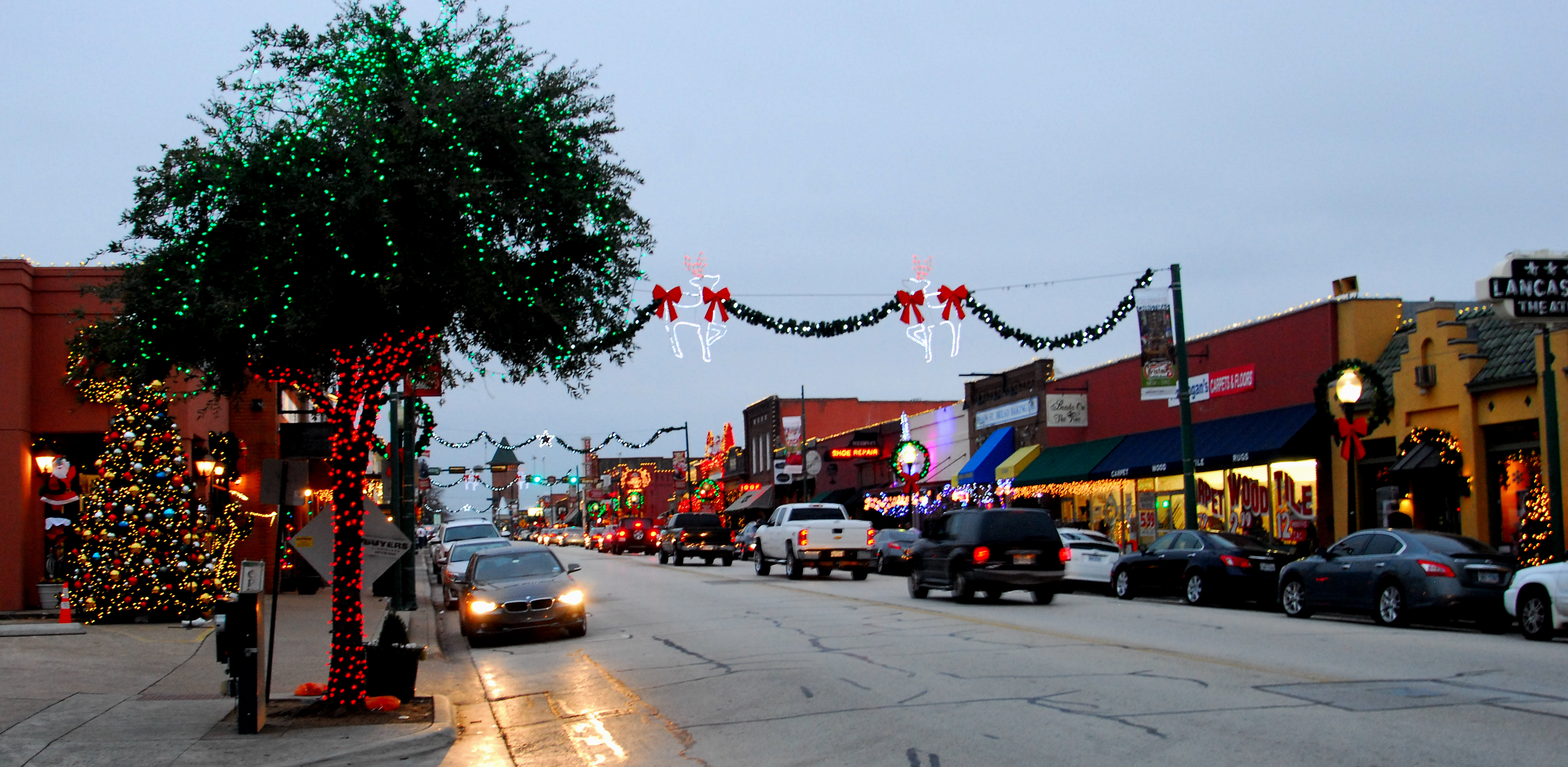
Nurses give extra TLC to the babies in the NICU at Deaconess Hospital
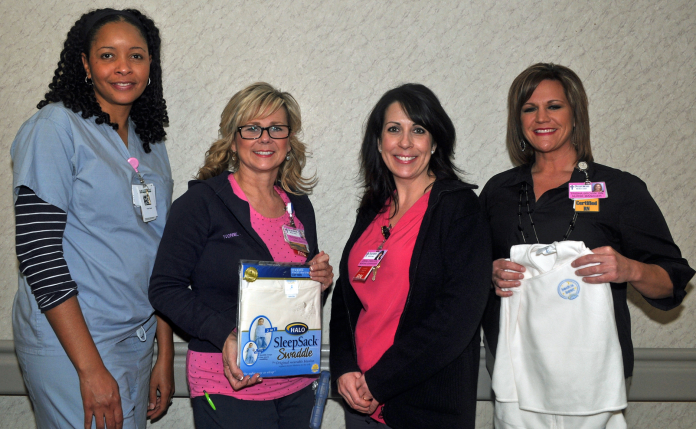
by Vickie Jenkins
The Birth Center at Deaconess hospital features eighteen elegantly appointed single-room maternity suites that allow mothers to share the birth experience with family in a beautiful, home-like atmosphere by staying in the same room for labor, delivery, recovery and postpartum care. Nine-bed level-II NICU provides excellent care for babies who need additional medical attention. The NICU is staffed by registered nurses and board-certified neonatologists. One-on-one nurse to patient ratio throughout the entire labor and delivery process.
Deaconess Hospital in Oklahoma City is known for their outstanding doctors and nurses. Picture: From L-R: Tanya Bogan, RN, Yvonne Silberman RNC-OB, Jonna Criscuoli, RN and Supervisor Trisha Brown, RNC-OB show the Sleep Sack Swaddle that each newborn receives at Deaconess. The Sleep Sack is a Safe Sleep Initiative that was introduced February 14, 2014.
Here are some Safe Sleep Swaddle Tips to ensure a safe sleep for your baby. Always place baby to sleep on his or her back at naptime and night time. Use a crib that meets current safety standards with a firm mattress that fits snugly and is covered with only a tight-fitting crib sheet. Remove all blankets, comforters and toys from your baby’s sleep area (this includes loose blankets, bumpers, pillows and positioners). The American Academy of Pediatrics suggests using a wearable blanket instead of loose blankets to keep your baby warm. Offer a pacifier when putting baby to sleep. If breastfeeding, introduce pacifier after one month or after breastfeeding has been established. Breastfeed, if possible, but when finished, put your baby back to sleep in his or her separate safe sleep area alongside your bed. Room share, but don’t bed share. Bed sharing can put a child at risk of suffocation. Never put your baby to sleep on any soft surface (adult beds, sofas, chairs, water beds, quilts, sheep skins etc.) Never dress your baby too warmly for sleep. Never allow anyone to smoke around your baby.
Deaconess Hospital is proud of their new Hugs and Kisses Security System as of January 2015. The Hugs system offers the reliability that you and your staff can depend on every day to keep your infants safe. The Hugs tag attaches in seconds and is automatically enrolled in the software.
Protection can start right in the delivery room. The Hugs system requires no manual checks of infant tags or other devices to make sure they’re working. The Hugs system software -continually monitors the status of all devices, and will generate an alarm if something goes wrong. There is an automatic mother/infant matching. With the Kisses® option, the Hugs system automatically confirms that the right baby is with the right mother. There are no buttons to push and no numbers to match.
Deaconess Hospital offers Certified Lactation Consultants that round on all post-partum and NICU mothers. Here you will find Neonatologists and Neonatal Nurse Practitioners on call 24/7 for high risk deliveries.
SENIOR TALK – What’s your favorite thing about spring? Featherstone Plaza Retirement and Assisted Living
What’s your favorite thing about spring? Featherstone Plaza Retirement and Assisted Living
The birds singing and things are trying to grow and just the whole atmosphere. Betty Young
I guess the best part is the beginning when we’ve been sitting in winter so long and we’re tired of it. It just makes you feel good. Hassie Milner
To me it’s the Talimena Scenic Drive and seeing all the trees in bloom. Bill Brown
I just love things growing whether it’s flowers or whatever. James Smith
Oklahoma Assisted Living Group Works to Improve Lives of Seniors
The Oklahoma Assisted Living Association (OKALA) joined 35 of its state peers this week in Washington, DC in a meeting hosted by the Assisted Living Federation of America to discuss strategic relationships that promote excellence in senior living throughout Oklahoma and the nation.
The group engaged in fruitful dialogue focused on credentialing, standards, and public policy in the senior living industry that enhance levels of care while creating consistent, meaningful regulatory and legislative reform. Oklahoma and its state partners agreed that some of their most pressing issues include addressing the increasing acuity of residents in senior living communities and current life safety codes. OKALA also looks forward to serving in a leadership role within the state to help unite senior advocacy groups on the state level.
“This meeting between ALFA and its state partners really shows the spirit of partnership and collaboration that will lead us all too even greater success,” said Oklahoma Assisted Living Association Executive Director, Melissa Holland.
Many seniors and their families turn to assisted living to have the necessary supports they need to continue caring for their loved ones. While providing excellent quality of care, it is quality of life that has made assisted living such a popular option. Seniors who were isolated in their own homes, without friends or purpose of life, thrive after moving into an assisted living community.
A 2013 poll shows that 94% of assisted living residents say they are satisfied or very satisfied with the overall quality of life in their community. Today, 99% of senior living residents say they feel safe or very safe in their community.
“There was strong recognition among the group that the senior living industry has changed since ALFA was founded 25 years ago,” ALFA President and CEO James Balda said. “The senior living industry is successful when we’re successful together. This meeting helped us all move the discussion forward so that our new efforts in branding, credentialing and standards can be well integrated with the efforts we’ve seen by our state partners.”
Assisted living is home for our residents and typically 50% less expensive than a skilled nursing facility. Over 80% of senior living residents pay from their own private resources. There are many assisted living options available at various price points including large or small, urban or rural, high-rise or single level.
The Oklahoma Assisted Living Association (OKALA) is dedicated to the preservation of dignity and choice for older Oklahomans and to the quality of their care in the senior living setting. For over 18 years OKALA has been providing educational opportunities including an administrator certification course; representation with state department of health; and legislative advocacy for Assisted Living communities and those who provide services to them. For more information visit www.okala.org or on facebook.
Finding solutions – Senior Care Referral Services brings answers

by Jason Chandler
Staff Writer
Rick and Denise Guttenberger help families who are faced with finding senior care options, navigate to find those options.
“It can be confusing and complex at times, so we help them do that at no cost to them,” Rick said.
The Guttenbergers are the owners of Senior Care Referral Services, a company based in Edmond and serving the greater metropolitan area of Oklahoma City. Their service area ranges from Edmond to Norman and from Mustang to Midwest City.
“We get to say, ‘We can help you,’” Denise said.
Whether seniors need independent living communities, assisted living, memory care or at home care, Senior Care Referral helps seniors find the resources they need.
“For the past couple of years, we have felt called to work with the senior community,” Denise said. “I can’t really explain it other than it was a calling and we needed to do something and we started looking at different options that might be available.”
Rick recalled the common conversations with his peers before they founded the company. Friends would say, “Gosh, I’ve got to do something with mom. She can’t live at home anymore.’”
He recognized a need for guidance to establish a place to start.
“We really felt there was a need locally for a trusted group that could provide that information for them,” Rick said.
They found their niche with Senior Care Referral Services. It is a wonderful way to walk with families, providing them ease of mind by simplifying their search for answers.
“What does it cost? What kind of care am I going to find? Does my insurance pay for it?” are typical questions posed by their clients.
Oftentimes when approached by a prospective client, the Guttenbergers will hear, “We don’t know what to do.’”
Helping seniors to navigate, making their life easier with a myriad of answers, brings joy to both the Guttenbergers and their clients.
When a client needs home health, then Senior Care Referral Services will provide referral services to companies they recognize as senior-friendly leaders in the field.
“We spent quite a few months visiting almost all the communities in the greater Oklahoma City area,” Denise said. “We took the tours. We talked to the marketing people and the director, looked at reviews, so we could feel confident that any place we would take a family is a place we would take our own family.”
Primary caregivers can reach a point in their lives when there are more questions than solutions. Their own energy becomes spent in trying to do more than they can handle. Senior Care Referral Services allows the Guttenbergers to find solutions for seniors.
“Sometimes it’s just time. Sometimes it’s, ‘Gosh, I think mom would be safer if we helped mom find a community she could live in and where meals are prepared and the maintenance is done. She doesn’t have to get out on the roads to drive.’”
A fall or injury with a loved one may prompt a son or daughter to make a decision to enhance their parent’s quality of life for the better.
The first determination made by Senior Care Referral Services is to determine the level of care a client needs, Rick said. It could be independent living, providing meals and a safe environment.
Others may need assistance with daily living activities, he said, such as dressing, eating and medication management.
“The next thing is — do they have a geographical preference?” Rick continued. “Do they want to be in Norman. Do they want to be in Midwest City or northwest Oklahoma City?”
One’s budget is the third consideration, because prices vary significantly, Rick said. There are average prices for certain levels of care, so Senior Care Referral Services helps clients to understand what services can fit their budgets.
“The fourth thing is timing,” Rick said. “When someone is coming out of skilled nursing Tuesday, and they need a place Tuesday because they can’t go back home — that may limit their options with the availability in different communities.”
All of these considerations are fine-tuned into an understanding of choices that are best suited for the individual clients’ needs. Services provided by Senior Care Referral Services are free to the clients. Service providers in the community pay for the cost.
“We can help narrow their option choices pretty quickly,” Rick said. “What might take them months to figure out on their own, we can help them figure that out in a 20-minute phone call.”
Sometimes, Rick and Denise will work with the seniors themselves, who have become isolated. Churches have asked them to help some of their members.
“We’ll go and get them and help them go on tours, and find their new home,” Denise said.
‘Magna Carta: Enduring Legacy’ Exhibit Slated for March 23 – April 5
In commemoration of the 800th anniversary of one of the most enduring symbols of liberty and the rule of law, the Oklahoma State Capitol will host the “Magna Carta: Enduring Legacy 1215-2015” exhibit from March 23 to April 5.
The event will be free and open to the public. The exhibit will be displayed in the Supreme Court Hallway on the second floor of the State Capitol.
The exhibit tells the story of the Magna Carta, which is widely regarded as one of the most important legal documents in the history of democracy.
“Bringing the incredible story of the Magna Carta to the halls of the people of Oklahoma’s government presents a unique opportunity to celebrate the document that makes our form of government possible,” Oklahoma Secretary of State Chris Benge said. “We are thrilled to host this exhibit so Oklahomans can learn about and appreciate the foundations of democracy as we know it today.”
The Magna Carta stands at the heart of English and American law and has influenced the legal systems of many other democratic nations.
King John of England was forced to sign the Magna Carta in 1215. The document greatly reduced the power wielded by the King of England and allowed for the creation of a powerful Parliament. It thus became the basis for English citizens’ rights.
The Magna Carta is therefore considered to be the founding document of English liberties and hence of American liberties. Because of the Magna Carta, the divine right of kings was superseded by government of and by the people and legal principles such as habeas corpus.
“There’s a direct link between the Magna Carta and our state government,” Benge said.
The Library of Congress and the American Bar Association developed the traveling educational exhibit to raise awareness about the Magna Carta’s enduring legacy. The traveling exhibit, displayed on freestanding banners with images of priceless Magna Carta-related items, complements the Magna Carta: Muse and Mentor exhibition previously on display at the Library of Congress.
The traveling exhibit is brought at no cost to the state through partnerships with the Library of Congress, American Bar Association and the Federalist Society. The state’s hosts are the Oklahoma Legislature, Secretary of State Chris Benge, the Oklahoma Arts Council, and the state Office of Management and Enterprise Services.
Senior hunger still a problem
by Mike Lee,
Staff Writer
Statistically, one in six Oklahoma seniors is hungry in our state.
It’s a tragedy that can be avoided, according to Angie Doss, director of marketing and communications for the Regional Food Bank of Oklahoma,
“It’s a huge problem,” Doss says of hunger in Oklahoma. “A lot of seniors are on a very tight and limited income. They may receive $600 per month. By the time you take out housing, utilities and transportation there’s not a lot left for food or medicine.
“A lot of our senior clients have faced the choice whether to pay for medicine or food.”
Oklahoma continues to rank among the top 10 states in the nation for food insecurity among seniors.
This spring, Oklahomans can double the impact of their gifts to help feed even more seniors struggling with hunger.
Through April 30, the Charles and Cassandra Bowen Charitable Foundation and the Anderson Charitable Foundation have teamed up to match donations to the Regional Food Bank of Oklahoma to fight senior hunger – up to $130,000.
Donations will help provide food for seniors in central and western Oklahoma.
“After a lifetime of work, many seniors are living on fixed incomes and may not have enough money to purchase food at the end of the month,” said Rodney Bivens, executive director of the Regional Food Bank. “About 700,000 seniors, age 60-plus, live in Oklahoma and one in six face hunger every day.”
In a recent study by Feeding America, 27 percent of seniors in the Regional Food Bank’s service area have had to choose between buying food and buying medicine. Limited mobility and dependence on outside assistance makes seniors particularly vulnerable to hunger. In Oklahoma, seniors are 25 percent more likely to be have inconsistent access to food than the national average.
Seniors facing hunger are also forced to choose between buying food and paying for utilities. Additionally, they are more likely to have lower intakes of food and major vitamins; be in poor to fair health; have limitations in activities of daily living and have increased risk of stroke.
“At the end of the month, most seniors are out of money and depend on the Regional Food Bank,” shared one senior client. “If they did not come, many seniors would be without food at the end of the month and it would affect them all. We’re just so awfully grateful for what we get.”
The Regional Food Bank serves seniors through food pantries, emergency shelters, soup kitchens, and senior nutrition programs. Additionally, the nonprofit’s Senior Feeding program fights senior hunger through Senior Mobile Pantries, Senior Home Delivery, and Senior Mobile Markets.
Through the Senior Mobile Pantry program, the Regional Food Bank provides food each month to seniors living in nine Oklahoma City Housing Authority sites and one Norman Housing Authority site. Approximately 850 senior residents receive a sack of nonperishable food items along with produce, refrigerated items, meat, and bread.
The mobile pantry is set up as a “client choice” program, where seniors choose which items they need.
The Senior Home Delivery Program is at 32 sites in the Regional Food Bank’s 53-county service area. Seniors who, receive home delivery sacks, receive a nutritional supplement at the end of the month. These sites serve an average of 1,000 seniors a month.
The Senior Mobile Markets provide a monthly distribution of food that is set up farmer’s market style, where participants select the food they want. A typical mobile market provides a bag of non-perishable foods like fruits and vegetables, cereal, shelf stable milk, and other easy to prepare foods. Items also include protein, fresh produce and bread.
The program currently has 18 locations in the Oklahoma City metro and serves over 1,100 seniors a month.
“Sadly, many older Oklahomans have outlived their families, outlived their income or have simply been forgotten,” said Charlie Bowen with the Charles and Cassandra Bowen Charitable Foundation. “That is why this match is so important.”
Traditionally, the Regional Food Bank provides five meals for every dollar donated; however, thanks to this generous match, a dollar donation will provide the equivalent of 10 meals to seniors facing hunger.
The Regional Food Bank of Oklahoma is the state’s largest private hunger relief organization. The nonprofit provides enough food to feed more than 110,000 hungry Oklahomans each week through a network of nearly 1,200 schools and charitable feeding programs in 53 central and western Oklahoma counties. Since its inception in 1980, the Regional Food Bank has distributed more than 538 million pounds of food to feed Oklahoma’s hungry.
For more information you can contact the Regional Food Bank at 405-600-3136 or online at www.www.regionalfoodbank.org.
Proposal by McAlester Legislator Would Authorize Multi-Year Registration
An east-central Oklahoma legislator has filed a measure that would allow Oklahoma car, truck, van and motorcycle owners to renew their motor vehicle registration for more than just one year.
House Bill 1091 by Rep. Donnie Condit, D-McAlester, was endorsed Thursday by the House Appropriations and Budget Committee, and earlier by its Revenue and Taxation Subcommittee. The bill has been placed on the legislative calendar for consideration by the full House sometime within the next two weeks.
HB 1091 provides that “at the owner’s discretion” he/she could renew a non-commercial motor vehicle’s registration annually, or for two years or three. The fees for multi-year registration “shall be equivalent to the total of fees that would otherwise be assessed … if the owner had elected to renew the registration on an annual basis,” the bill stipulates.
“I think there are some Oklahomans who, as a matter of convenience, would prefer to register their vehicles once every two or three years instead of every 12 months,” Condit explained.
While the option of multiple-year registrations might shift an indeterminate amount of revenue to another fiscal year, no change in total registration fees would occur, House staff concluded.
Almost 4,070,000 vehicles and trailers were registered with the Oklahoma Tax Commission in Fiscal Year 2014, generating $622.8 million, ledgers show. The vehicles included 2.96 million cars and pickups, nearly 151,000 farm trucks, more than 129,000 motorcycles, more than 16,000 motor homes, plus 72,500 travel trailers.
Local Artist Creates Special Crucifixes for St. Anthony Healthplex Facilities
Don Narcomey, local artist, is currently working on the fourth installment of crucifixes he makes for the St. Anthony Healthplex facilities.
Each facility has 12 emergency rooms, with each one containing a custom built niche to house and light his beautiful crucifixes.
Narcomey is a talented artist using a variety of woods and other materials for his works and uses special care when searching for the right pieces. “For the Christ figure, I go out into the woods or rummage through torn out shrubbery and search for branches that have a “pose” that suggests a Christ figure.” Finding the perfect material for his work is just the start, as he later returns to his studio to cut, grind, and carve these figures to take on a life of their own.
Narcomey’s newest creations will be displayed at the new St. Anthony Healthplex North location located on North Western Avenue. St. Anthony Healthplex North officially opened its doors the last week of February.



